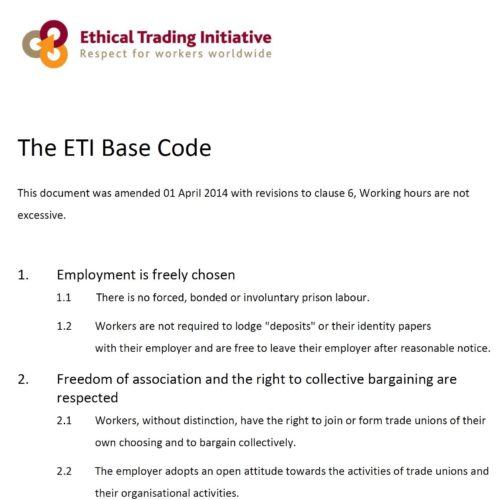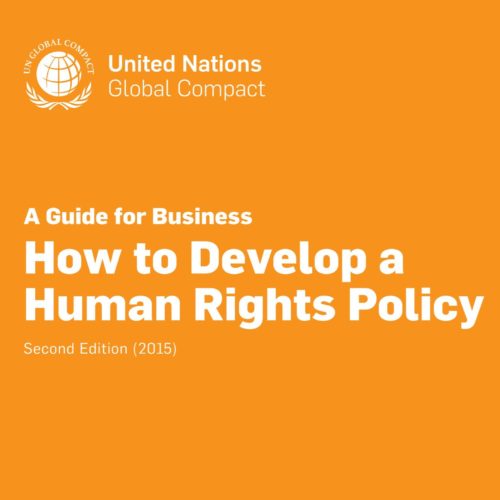-
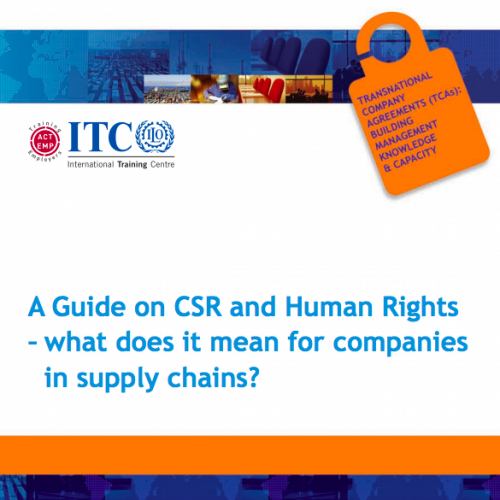 The Centre is the training arm of the ILO. This guidance is intended for small and medium-sized enterprises to understand, implement and adhere to the UN Guiding Principles on Business and Human Rights. It looks at the expectations placed on SMEs and buyers, the challenges they face and the support available for them.
The Centre is the training arm of the ILO. This guidance is intended for small and medium-sized enterprises to understand, implement and adhere to the UN Guiding Principles on Business and Human Rights. It looks at the expectations placed on SMEs and buyers, the challenges they face and the support available for them. -
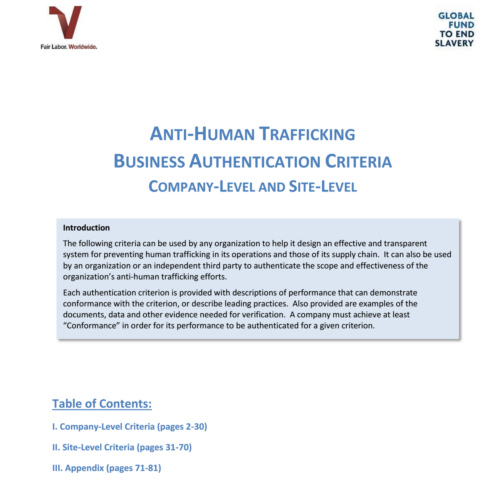 Verite have published guidance on establishing an effective and transparent system to protect against modern slavery in supply chains. It details both in-company and site-level guidance. The criteria provided are intended to be used by any organisation to help design a system for preventing human trafficking within business operations and the supply chain. Each authentication criterion is accompanied by examples of leading practice and verification evidence.
Verite have published guidance on establishing an effective and transparent system to protect against modern slavery in supply chains. It details both in-company and site-level guidance. The criteria provided are intended to be used by any organisation to help design a system for preventing human trafficking within business operations and the supply chain. Each authentication criterion is accompanied by examples of leading practice and verification evidence.Credit: Verite
-
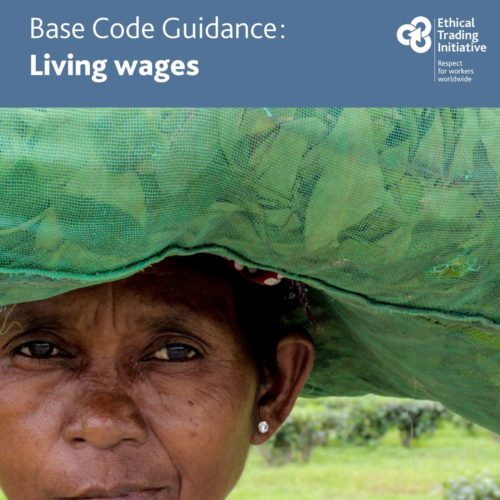 The Ethical Trading Initiative (ETI) is an alliance of companies, trade unions and NGOs that promotes workers' rights around the world. Through this guide, they share what companies can do to create the enabling conditions for the payment of living wages, in line with their commitment to the ETI Base Code. They outline their expectations of ETI members and provide guidance on winning senior executives’ support for living wages. The guidance includes practical steps for developing living wage strategies and collaborating with stakeholders to identify sustainable, scalable solutions. It also covers the vital question of how to offset the cost of increased wages, and includes the experience of ETI members.
The Ethical Trading Initiative (ETI) is an alliance of companies, trade unions and NGOs that promotes workers' rights around the world. Through this guide, they share what companies can do to create the enabling conditions for the payment of living wages, in line with their commitment to the ETI Base Code. They outline their expectations of ETI members and provide guidance on winning senior executives’ support for living wages. The guidance includes practical steps for developing living wage strategies and collaborating with stakeholders to identify sustainable, scalable solutions. It also covers the vital question of how to offset the cost of increased wages, and includes the experience of ETI members.Credit: Ethical Trading Initiative
-
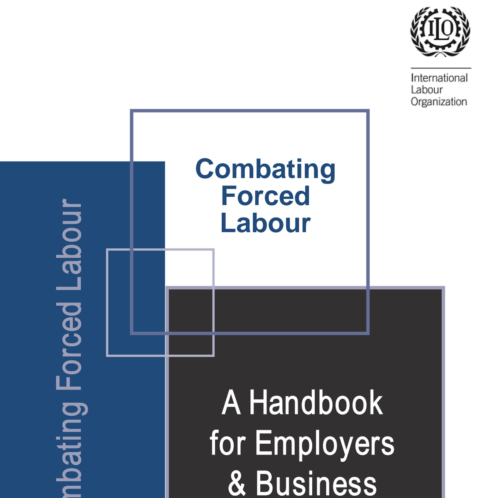 The ILO is the UN organisation responsible for setting and monitoring international labour standards. This handbook is intended as a resource for employers to coordinate a response to the risk of forced labour and human trafficking in supply chains. It is also intended to help strengthen capacity to address issues in operations and global supply chains. It provides employees and employers at different levels of business with guidance and tools to address the issue, and to identify and prevent trafficking.
The ILO is the UN organisation responsible for setting and monitoring international labour standards. This handbook is intended as a resource for employers to coordinate a response to the risk of forced labour and human trafficking in supply chains. It is also intended to help strengthen capacity to address issues in operations and global supply chains. It provides employees and employers at different levels of business with guidance and tools to address the issue, and to identify and prevent trafficking.Credit: International Labour Organisation (ILO)
-
 Stronger Together is a multi-stakeholder initiative which aims to reduce modern slavery. It provides guidance, training and resources to organisations, employers, labour providers, workers and their representatives. This free collection of resources includes pragmatic guidance and toolkits, and resources for the workplace including multilingual posters, leaflets and template policies. This template is to be modified as required and for inclusion with a wider Tackling Modern Slavery in Business and Supply Chain or Business Human Rights Policy.
Stronger Together is a multi-stakeholder initiative which aims to reduce modern slavery. It provides guidance, training and resources to organisations, employers, labour providers, workers and their representatives. This free collection of resources includes pragmatic guidance and toolkits, and resources for the workplace including multilingual posters, leaflets and template policies. This template is to be modified as required and for inclusion with a wider Tackling Modern Slavery in Business and Supply Chain or Business Human Rights Policy.Credit: Stronger Together
-
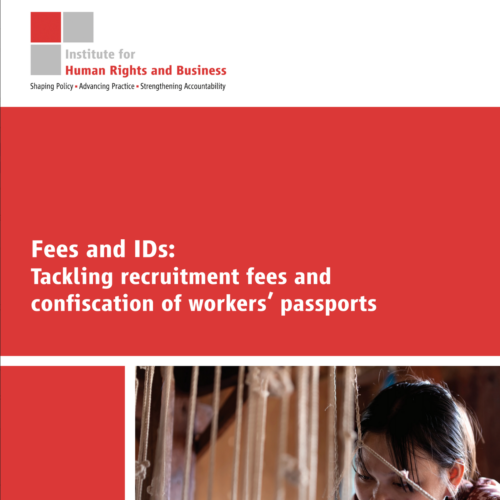 This is a guide produced by the think tank IHRB for tackling the exploitative recruiter practices of charging recruitment fees and confiscation of workers’ practices. The report gives background information regarding the extent of these practices, the current national and international legal frameworks, the business response to the problem and challenges to businesses, and ends with recommendations to businesses.
This is a guide produced by the think tank IHRB for tackling the exploitative recruiter practices of charging recruitment fees and confiscation of workers’ practices. The report gives background information regarding the extent of these practices, the current national and international legal frameworks, the business response to the problem and challenges to businesses, and ends with recommendations to businesses.Credit: Institute for Human Rights and Business (IHRB)
-
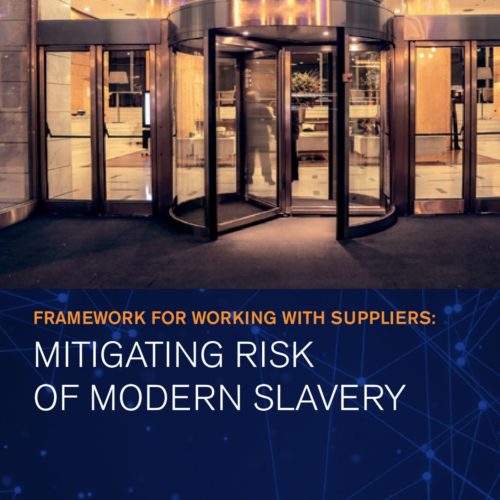 The Framework for Working with Suppliers: Mitigating Risk of Modern Slavery is a tool intended to be used by stakeholders at various levels of management within the hotel industry. It recommends specific responsibilities for brands, hotel owners and management companies, based on best practice and the experience and input of the Stop Slavery Hotel Industry Network (the "Network") membership. The Network brings together representatives from across the hotel industry to combat human trafficking and modern slavery within the sector. Its ethos stems from the acknowledgement that actors across the industry, whether international brands, bespoke hotel groups, independent owners, managers or employee agencies are all responsible for combating this horrific crime.
The Framework for Working with Suppliers: Mitigating Risk of Modern Slavery is a tool intended to be used by stakeholders at various levels of management within the hotel industry. It recommends specific responsibilities for brands, hotel owners and management companies, based on best practice and the experience and input of the Stop Slavery Hotel Industry Network (the "Network") membership. The Network brings together representatives from across the hotel industry to combat human trafficking and modern slavery within the sector. Its ethos stems from the acknowledgement that actors across the industry, whether international brands, bespoke hotel groups, independent owners, managers or employee agencies are all responsible for combating this horrific crime.Credit: Stop Slavery Hotel Industry Network
-
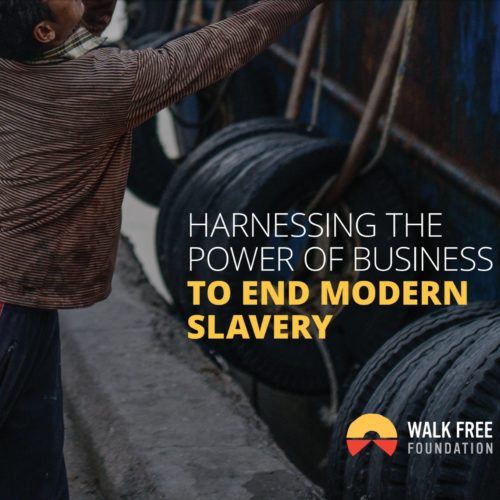 The Walk Free Foundation was established by Andrew Forrest, the Chairman of Fortescue Metals Group, after he found labour exploitation within his own supply chains and took a number of steps to prevent modern slavery affecting his business. This report provides an overview of modern slavery in a global context with statistics, case studies, and review of legislation and policy.
The Walk Free Foundation was established by Andrew Forrest, the Chairman of Fortescue Metals Group, after he found labour exploitation within his own supply chains and took a number of steps to prevent modern slavery affecting his business. This report provides an overview of modern slavery in a global context with statistics, case studies, and review of legislation and policy.Credit: Walk Free Foundation
-
 Hedging Risk by Combating Human Trafficking: Insights from the Private Sector is designed to help companies share best practices so they can mitigate their risks and help eliminate this heinous practice. In this first of a series, we highlight insights and technology-driven interventions in the hospitality, finance, and transportation industries.
Hedging Risk by Combating Human Trafficking: Insights from the Private Sector is designed to help companies share best practices so they can mitigate their risks and help eliminate this heinous practice. In this first of a series, we highlight insights and technology-driven interventions in the hospitality, finance, and transportation industries.Credit: World Economic Forum
-
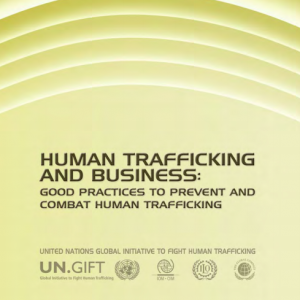 This report presents an introduction and overview of human trafficking and the role that business can play in addressing it. It draws from key case studies to illustrate some of the many ways employers can practically address human trafficking.
This report presents an introduction and overview of human trafficking and the role that business can play in addressing it. It draws from key case studies to illustrate some of the many ways employers can practically address human trafficking.Credit: UN Global Initiative to Fight Human Trafficking
-
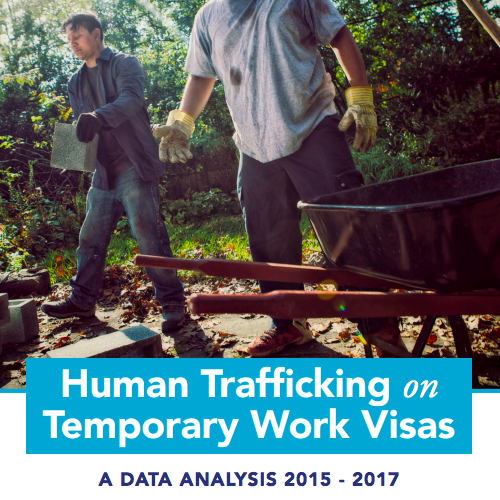 This report highlights the destructive practice of labour trafficking on temporary work visas, how the system is flawed, and the steps needed to fix it. From 2015-2017, Polaris collected data on the US temporary work visa system and identified some 800 victims of human trafficking who held temporary work visas at the time of their abuse.
This report highlights the destructive practice of labour trafficking on temporary work visas, how the system is flawed, and the steps needed to fix it. From 2015-2017, Polaris collected data on the US temporary work visa system and identified some 800 victims of human trafficking who held temporary work visas at the time of their abuse.Credit: Polaris
-
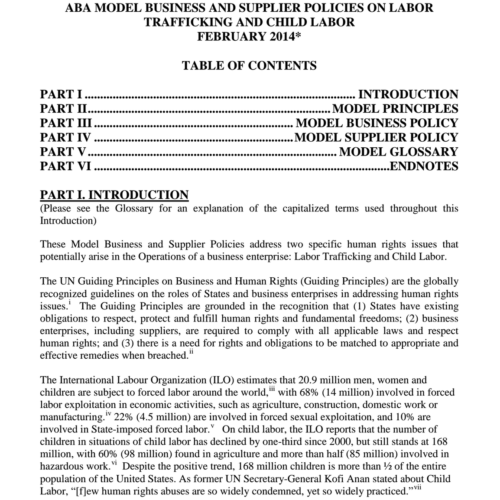 These model principles are intended for both businesses and suppliers that do not currently have policies relating to labour trafficking and child labour, and for those that do but want to adapt them to reflect evolving practices. Included are examples of model policies and principles that can be incoporated into codes of conduct or current business policies.
These model principles are intended for both businesses and suppliers that do not currently have policies relating to labour trafficking and child labour, and for those that do but want to adapt them to reflect evolving practices. Included are examples of model policies and principles that can be incoporated into codes of conduct or current business policies.Credit: American Bar Association
-
 Stronger Together is a multi-stakeholder initiative which aims to reduce modern slavery. It provides guidance, training and resources to organisations, employers, labour providers, workers and their representatives. This free collection of resources includes pragmatic guidance and toolkits, and resources for the workplace including multilingual posters, leaflets and template policies. These seven principles have been agreed upon by the supermarket businesses sponsored by Stronger Together. The list includes "common principles" for the businesses' supply chains partners to follow when completing modern slavery statements.
Stronger Together is a multi-stakeholder initiative which aims to reduce modern slavery. It provides guidance, training and resources to organisations, employers, labour providers, workers and their representatives. This free collection of resources includes pragmatic guidance and toolkits, and resources for the workplace including multilingual posters, leaflets and template policies. These seven principles have been agreed upon by the supermarket businesses sponsored by Stronger Together. The list includes "common principles" for the businesses' supply chains partners to follow when completing modern slavery statements.Credit: Stronger Together
-
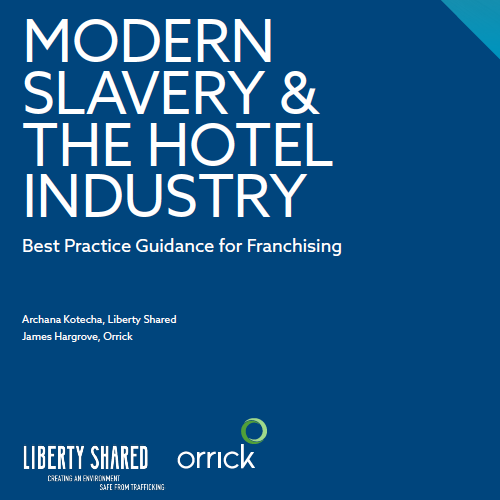 This guide, drafted by Liberty Shared, recognises the risks the hotel industry, and in particular hotels operating under major international brand franchises, face in regards to human rights abuses. This guide provides franchisors with an overview of the risks associated with modern slavery in relation to hotel franchise agreements and sets out practical solutions aimed at increasing the prospect that a franchisee's operations are free from these risks. Liberty Shared aims to prevent human trafficking through legal advocacy, technological interventions, and strategic collaborations with NGOs and corporations in Asia and globally.
This guide, drafted by Liberty Shared, recognises the risks the hotel industry, and in particular hotels operating under major international brand franchises, face in regards to human rights abuses. This guide provides franchisors with an overview of the risks associated with modern slavery in relation to hotel franchise agreements and sets out practical solutions aimed at increasing the prospect that a franchisee's operations are free from these risks. Liberty Shared aims to prevent human trafficking through legal advocacy, technological interventions, and strategic collaborations with NGOs and corporations in Asia and globally.Credit: Liberty Shared

